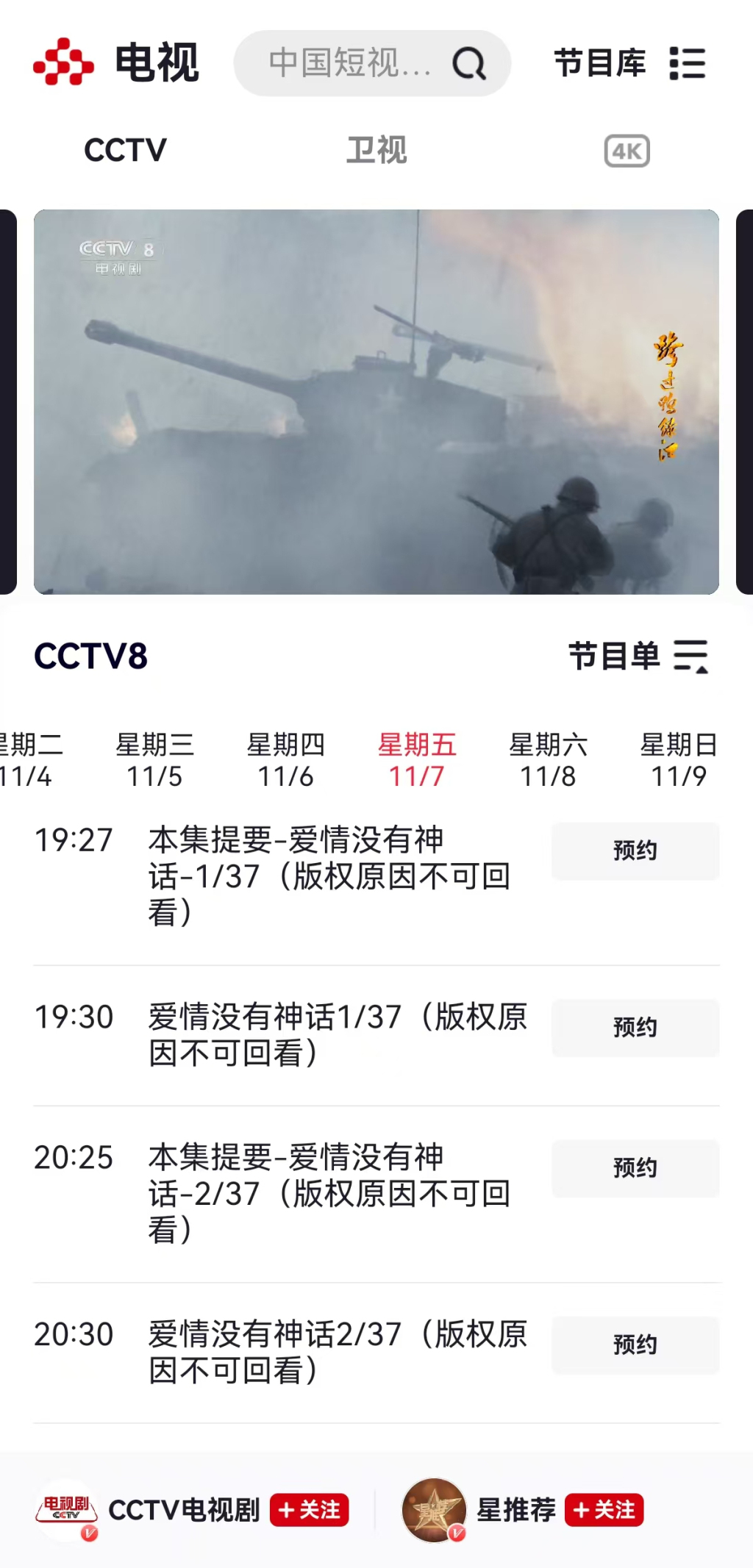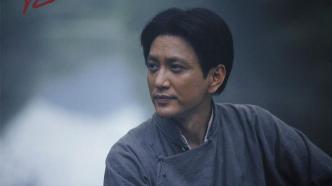
In many film and television works, the image of the great man Mao Zedong always attracts much attention. In the recently aired TV series "Ask the Cangmang", the life journey of young Mao Zedong once again aroused the attention and discussion of many viewers. Actor Wang Renjun also challenged this role again.
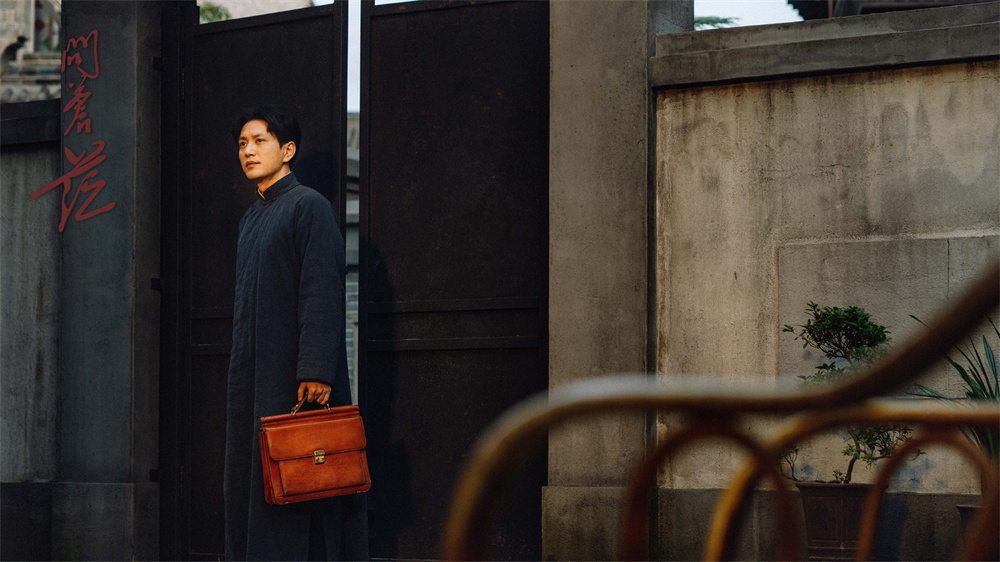
Stills from "Ask the Cangmang"
In 2019, Wang Renjun published "Do you know, do you know?" The character of Sheng Changbai, the eldest son of Sheng in "Should Be Green, Fat, Red and Thin" has entered thousands of households. He seems to be naturally suited to such a bookish and upright image. Subsequently, "Mao Zedong" in the movie "Gutian Bugle" once again proved his plasticity and acting skills. Up to now, "Ask the Cangmang" has been his fifth time playing the role of young Mao Zedong.
Before filming "Gutian Bugle", Wang Renjun never thought that one day he would play Mao Zedong. Before filming, the crew went to experience life in an old revolutionary area and visited an old Red Army soldier who had met Chairman Mao. The old man was 103 years old and attended a civilian primary school run by Mao Zedong in his early years. He sat in a wheelchair and told the young people on the crew the story of Chairman Mao.
"At that time, the host introduced me as the actor who played Mao Zedong. The old man was so excited that he stood up from his wheelchair, full of tears, and then held my hand tightly and never let go during the entire interview." At this moment. , Wang Renjun was very touched, and then asked: "Why does he have such a deep relationship with the people and the people in the old district? How was this emotion established?" Wang Renjun developed a strong curiosity about Mao Zedong's entire life experience and growth process. and interest.
"Ask the Cangmang" is the fifth time he has played Mao Zedong. "After five works, the more I play him, the more I love him, the closer I get to him, the more I admire him. His charm and wisdom, mind and spirit, It really encourages me both on and off the screen." Wang Renjun said, "I also want to pass on his spirit to today's young audiences, and his spirit should be passed on."
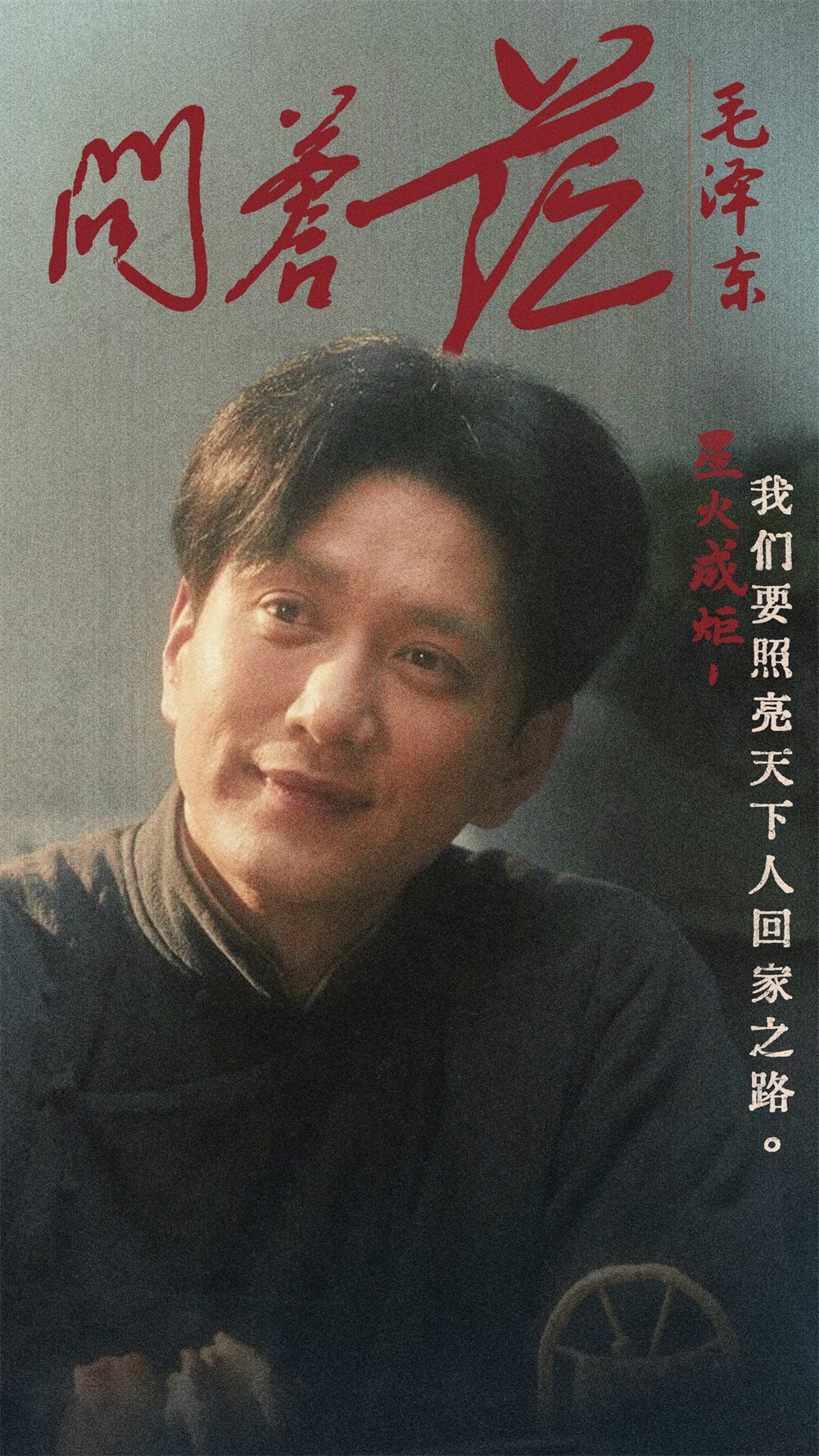
"Ask the Cangmang" character poster
From "follower" to "pioneer"
In "Ask the Cangmang", Mao Zedong is mainly presented from 1921 to 1927. This historical period is relatively rarely shown in film and television works. During this period, Mao Zedong returned to Hunan to run schools, develop revolutionary comrades, and carry out the labor movement... ...."Historically, many major events happened during this period." Wang Renjun said, "It's just that during this period, the young Mao Zedong was more of a young follower of the revolution and an executor. And this is precisely the most important thing. What attracts me: As a follower of the Chinese revolution, how he gradually became a pioneer and pioneer of the Chinese revolution through those years of hard work and experience. Great men are never born great. He must have explored through continuous hard work , precipitation, step by step towards greatness.”
"Ask the Cangmang" shows the characteristics of young Mao Zedong as a doer with great execution ability. When he finds a problem, he immediately goes to investigate and find a solution. He tried every means to overcome the difficulties and recruit many revolutionary comrades to run a self-study university. He had no funds and no manpower. He also recruited students for the Whampoa Military Academy. Many candidates in the Yangtze River Basin were basically introduced by him, in order to cultivate future military talents for the Communist Party. We have made a huge contribution, "This is something that few people know about, and it is also something we particularly want to show."
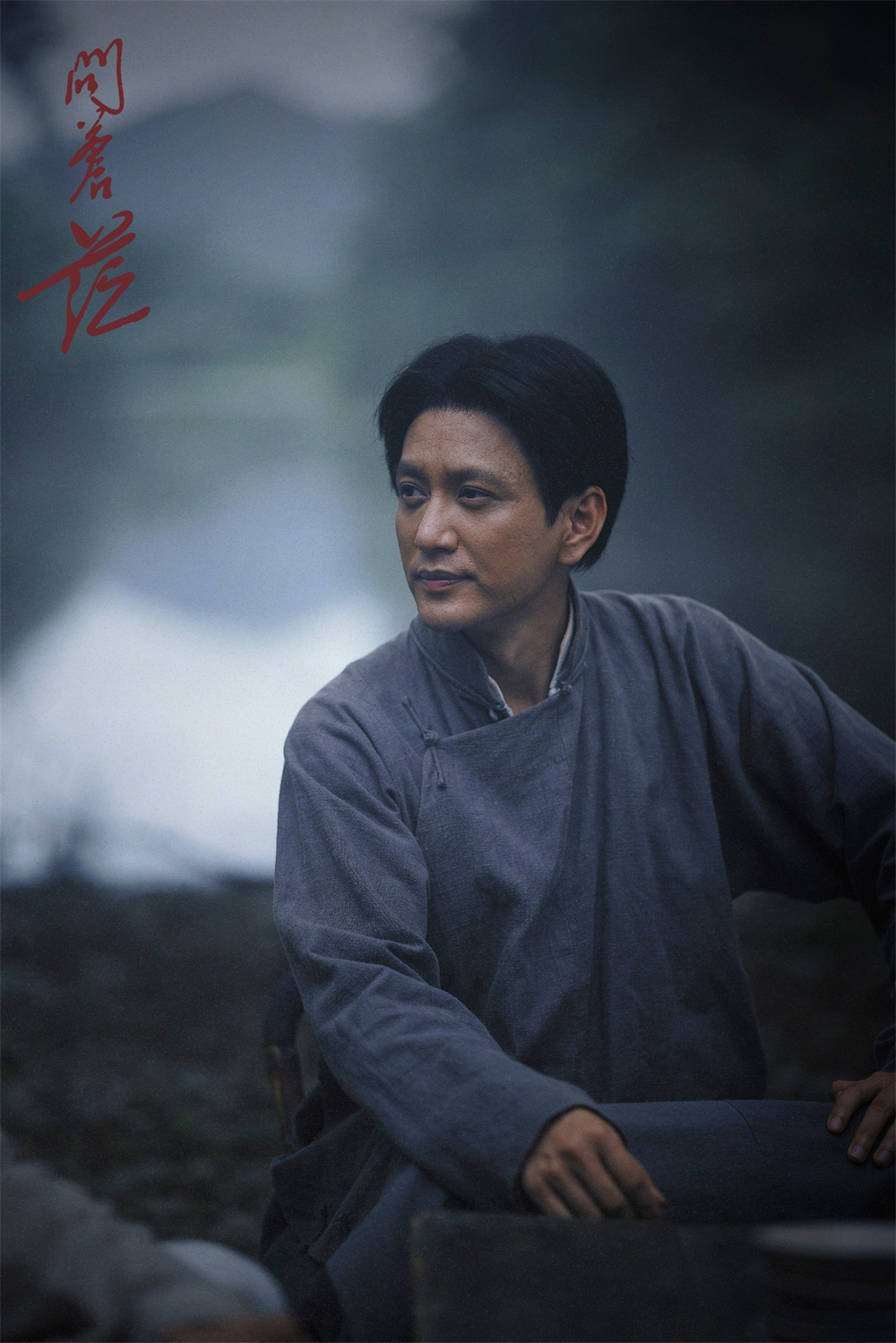
Stills from "Ask the Cangmang"
Wang Renjun was deeply impressed by the living conditions of Anyuan coal miners in the play. "In fact, in the play, we have softened the presentation of workers." Wang Renjun said about the historical data he knew, "In fact, more than 100 years ago, miners did not wear clothes when they went into the mines because it was very hot inside. , and if you stay there for a few minutes, your whole body, including under your fingernails, in your ears, eyes, and nostrils, will be filled with soot. At that time, you only had one piece of clothing, and you didn’t have time to wash it, so you had to take off your clothes and go to the mine."
The living environment of workers at that time is particularly restored in "Ask the Cangmang". Even when workers are sick, they dare not say, "You are sick and the mine manager says he won't let you work anymore. How will the whole family live?" There are bedbugs everywhere on the Datong bunk where dozens of people live, and rats are running out. The workers also say That's good stuff, "Why? Because when they go down to the mines, it's a good thing to see rats, because if the rats live, they can live."
Wang Renjun feels that these presentations are very meaningful and can allow ordinary audiences, especially young people, to see how miserable the living conditions of the industrial workers who really lived at the bottom were at that time. “That’s why they need someone to help them find the right path. We need a revolution."
In the play, the coal miners saw Mao Zedong as a kind and trusting man because he wrote articles and spoke out for the workers and worked hard to improve their lives and conditions. Mao Zedong, played by Wang Renjun, hugs the Anyuan workers as he bids farewell to them, with dilapidated workers' residences in the background. This scene is presented in a large panorama in "Ask the Cangmang", with a gloomy and solemn tone, like a powerful oil painting. "His status and emotion among the people at that time was a choice of history and a choice of the people."
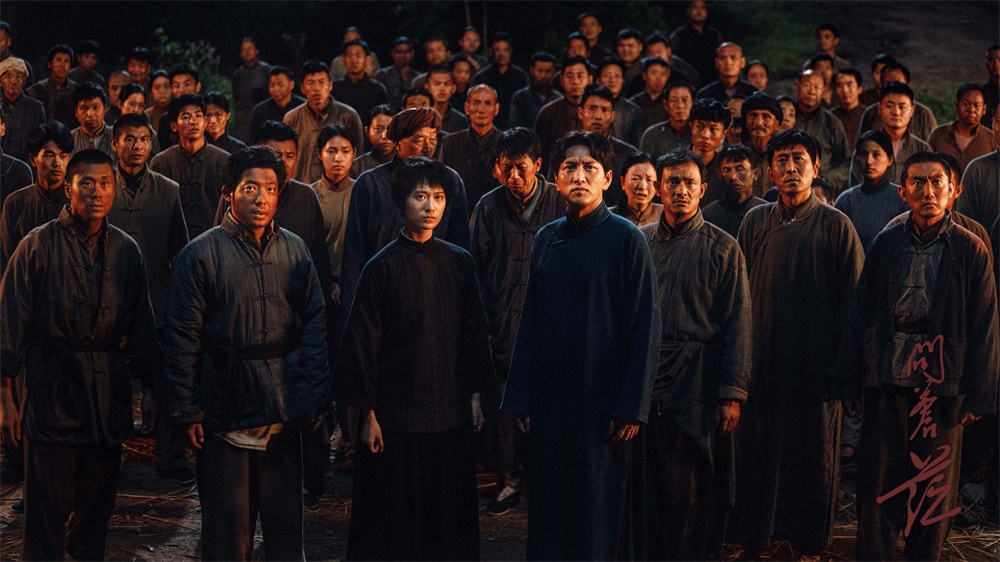
Stills from "Ask the Cangmang"
Performances must have a stance and attitude
In addition to its presentation on the revolutionary cause, "Ask the Cangmang" also innovatively presents young Mao Zedong's tenderness towards his family and lovers. "In fact, there are a lot of Mao fans now, and they are getting younger and younger. When we went to universities for exchanges, we found that there are many young people who know the history of the party and Mao Zedong's life experience. So how to reach these young audiences who understand the history of Mao , are you familiar yet novel when seeing the characters?”
"Acting requires a stance and attitude. When you play this character, you are also injecting your attitude towards the character." Wang Renjun said that he was particularly grateful to every director who had played Mao Zedong in his previous works. Taught him many experiences in shaping leaders. "I am particularly grateful to Director Chen Li (director of "Gutian Bugle") for saying something to me before: To create a leader, you must show your true feelings and your attitude towards this character. These are your own, don't go Learn from others. The homework you need to do is to check and watch a lot of information about him." In the process of interpretation, as Wang Renjun deepened his understanding of Mao Zedong, the young Mao Zedong he created was not deviated from the historical reality. Basically, nothing is the same. Every time he created a character, he had to throw away the character image he had created before, and redo the desk work such as reviewing information again and again to re-create the character.
"In fact, we also learned from the information that in his later years, the chairman often wrote letters to his two sons. The letters were sincere, asking what books he had read recently and how his studies were recently." Therefore, it is shown in the play Many young people have seen Mao Zedong's daily interactions with his family, including daily greetings and warmth, including rice, oil, salt, sauce, vinegar and tea in ordinary days. "In the play, when everyone has a rare reunion dinner, you can see the image of a big brother who is full of life; when they learn that their lover is pregnant, you can also see them looking forward to the future of the family together."
Many viewers were particularly touched and said, "I saw the softer side of Mao Zedong's heart." Wang Renjun believes that who is the "softness" in Mao Zedong's heart for? "Not only for the working people, but also for his family. He must give his most sincere emotions to his relatives. Only if he is such a person, his relatives will stand with him and follow him without hesitation. Taking the road of revolution, in order to defend the common beliefs and ideals, the Mao family successively gave birth to six martyrs."
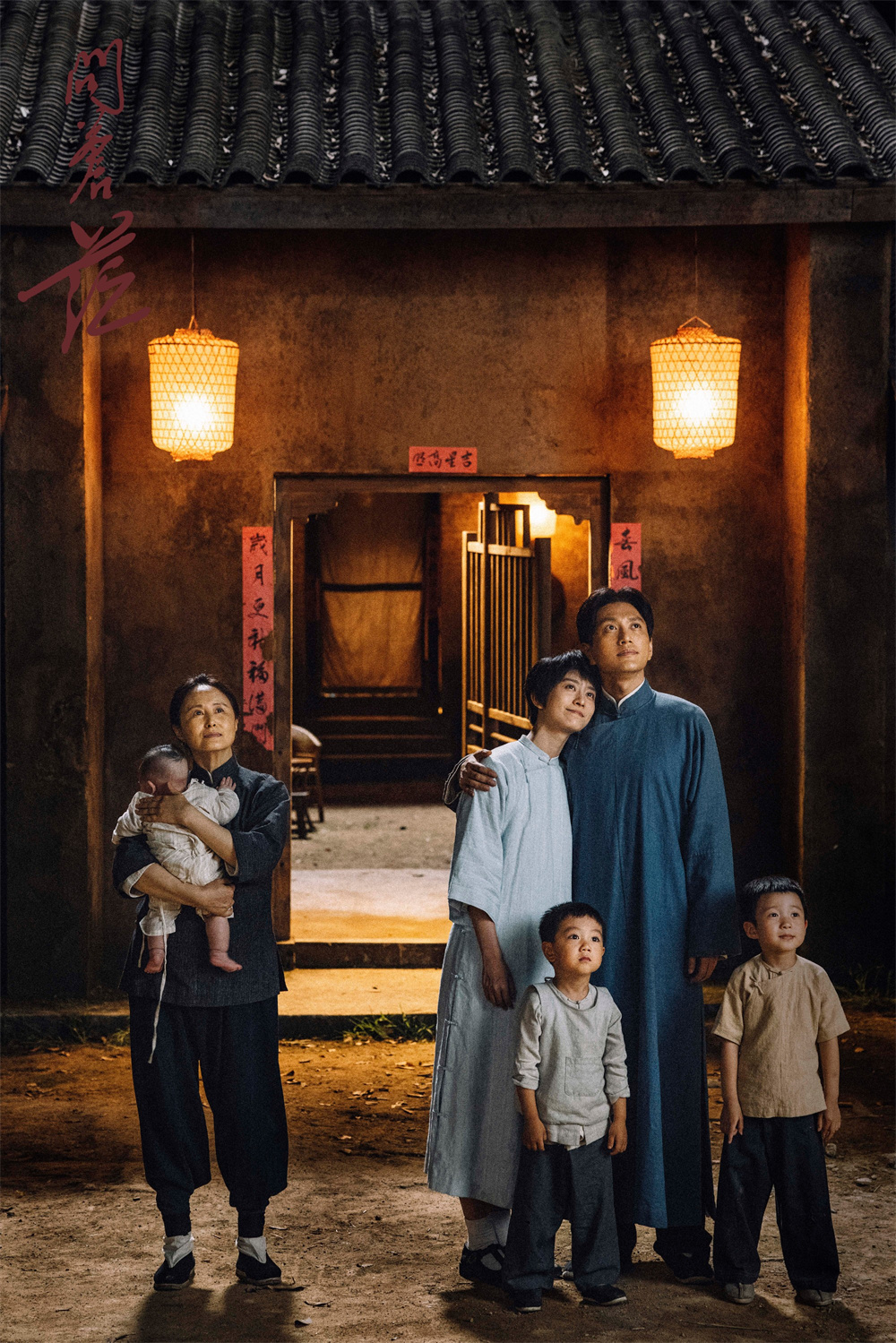
Stills from "Ask the Cangmang"
In "Ask the Cangmang", Wang Renjun designed many details of life for young Mao Zedong. For example, in a scene where Chen Duxiu invited Mao Zedong to eat shortbread, after one bite, the shortbread crumbs and sesame seeds fell on the table. Wang Renjun naturally picked up the dregs and sesame seeds with his hands and ate them. According to Wang Renjun’s understanding, Mao Zedong was very frugal. He wore a pair of pajamas with dozens of patches and still wore them. “Such a frugal person would definitely cherish food. Moreover, he was a ‘rural bastard’ and understood that food was hard-earned. .”
Moreover, in the play, the image of Mao Zedong who "never left his hand smoking" in the past is different. In the first half of the plot, Mao Zedong, played by Wang Renjun, never picked up a cigarette. "In the past, many film and television works portrayed Mao Zedong's classic action of smoking. Many records said that he 'never left his hand smoking', but now no one has verified when he started smoking." Wang Renjun said with a smile.
"When the action of smoking is presented in the performance, the first feeling it gives the audience is 'thinking', and the second is 'major changes and blows'. In his youth, Mao Zedong has always been particularly tenacious, seeking upwards and taking root downwards. The unity of knowledge and action. In our design, it was during the 'April 12' counter-revolutionary coup that he encountered major difficulties. It was under heavy emotions and tremendous pressure that he smoked cigarettes for the first time." So, The action of smoking has become an external expression of an important node in the character's growth and transformation.
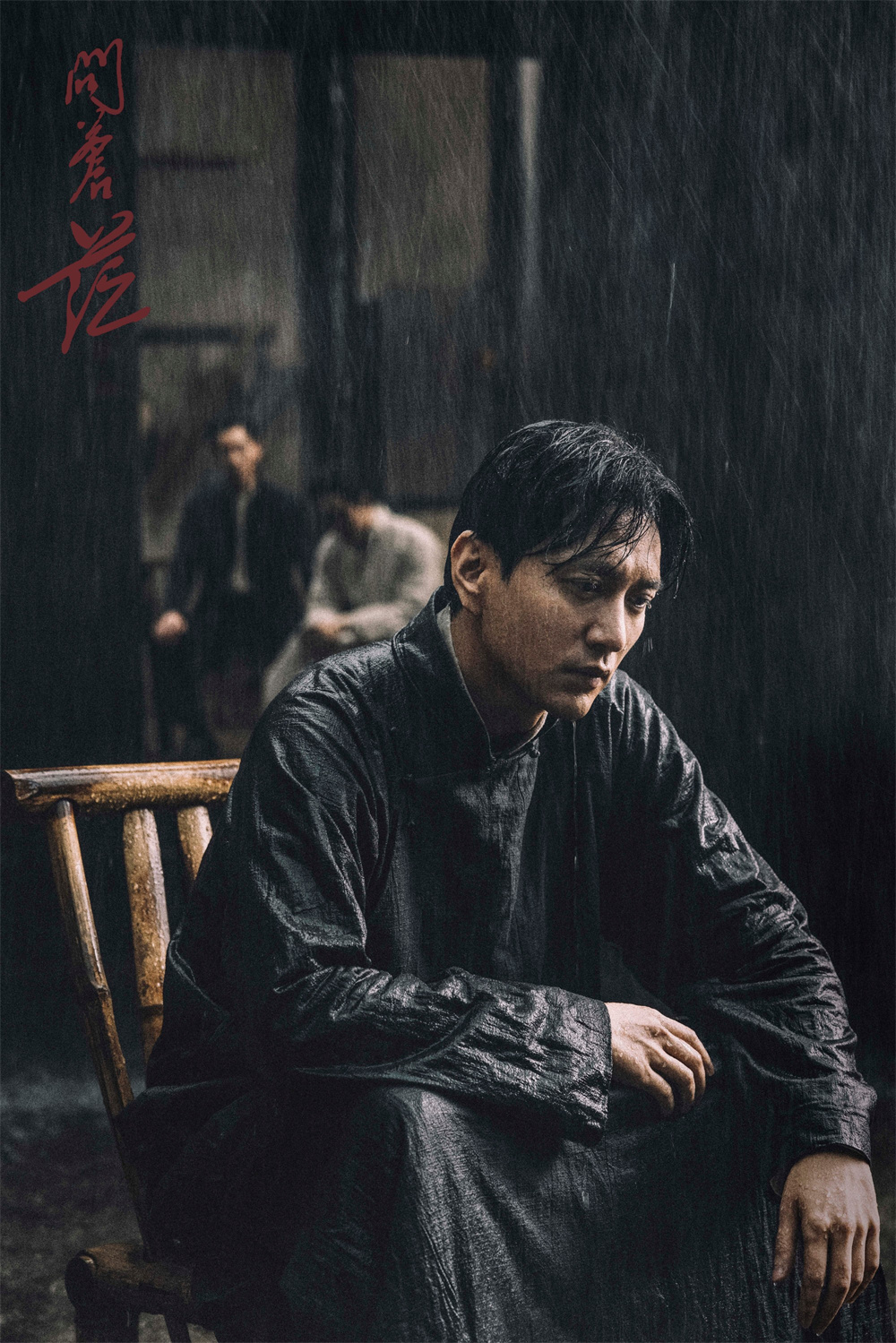
Stills from "Ask the Cangmang"
Playing Mao Zedong is "self-baptism"
As long as Wang Renjun can remember, he remembers that there was a portrait of Chairman Mao hanging in his home, and the elders in his hometown especially respected him. "I remember that when we were eating dumplings on New Year's Eve, Chairman Mao's portrait was placed in the middle of the table. Grandma took out the first bowl of dumplings and placed them in front of Chairman Mao. When children were young, if they reached out to take them, they would be beaten by grandma. , 'You can't eat it, this is for the chairman!'"
Therefore, when he played Mao Zedong for the first time, Wang Renjun did not dare to tell his family, "I was also afraid that I would disappoint them if the performance was not good." After the movie was released, he invited his family to the theater. The family members were very excited when they learned that Wang Renjun was playing Mao Zedong. "While watching the movie, the whole family burst into tears."
Today, the 103-year-old grandfather will also watch Wang Renjun's "Ask the Cangmang" on TV. "Although his ears are not good, he will cry with the characters in the play." For Wang Renjun, playing Mao Zedong requires a lot of effort. The first test I undergo is that of my family members. “Their evaluation is very important to me.”
Another time, Wang Renjun saw on Douyin that the 90-year-old model worker Wei Fengying had been received by Mao Zedong. For many years, she would cook a bowl of longevity noodles for Mao Zedong every December 26th. "She said, 'I can still cook when I'm 90. If I can still cook when I'm 100, I'll cook for him until he's 100.'" The general public's affection for Mao Zedong has not faded with the passage of time. Instead, I missed him more and more, which moved Wang Renjun very much. "As an actor who portrays him, I have to be worthy of the audience who love and respect him, but also to understand him, and to show his virtue, style, and spirit. This is our mission."
When playing Mao Zedong, out of respect and love for him, he will naturally be more strict with the actors. "This is understandable, so I have to have high standards and strict requirements for myself." The process of playing Mao Zedong, in Wang Renjun's view, is also ' Self-baptism' process. "When you encounter problems and setbacks, do you give up, or do you proactively discover problems, analyze them, and then solve them like Mao Zedong? He is proactive, sincere, and has the courage to be the first and the courage to fight. , it infects me all the time.”
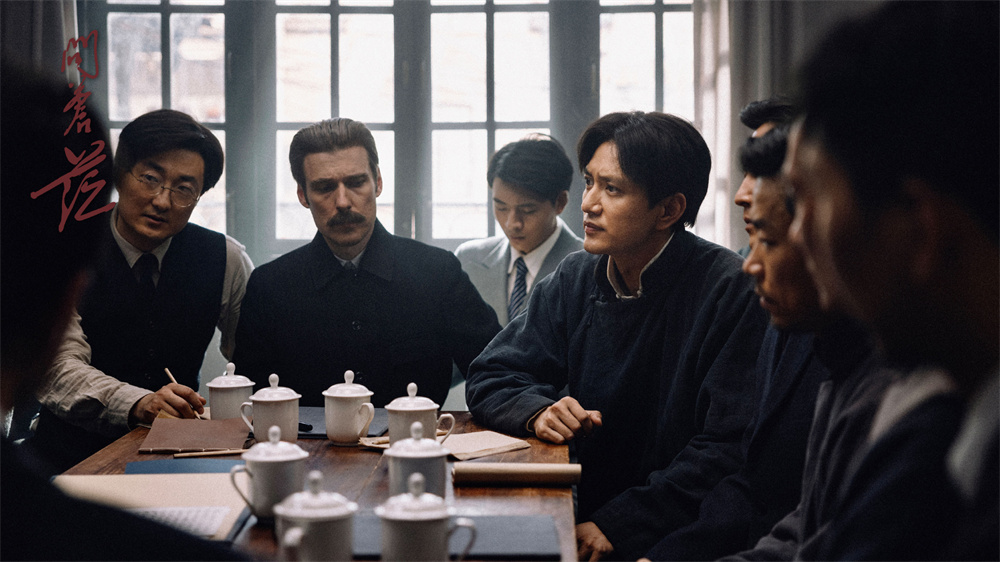
Stills from "Ask the Cangmang"
Wang Renjun has won a lot of praise for playing Mao Zedong many times. Regarding the audience's expectations and evaluations of actors, Wang Renjun said: "As actors, we always face various evaluations. When facing public evaluations, I think we should remain sober after being praised and cautious after being criticized. Motivation." He said frankly that he should not lose himself after receiving honors, but should look at these honors more calmly and objectively. At the same time, we must have a correct attitude towards criticism and turn pressure into motivation.
After many years in the industry, Wang Renjun's views on acting work have also undergone some changes. He said: "When I first entered film school, I was full of dreams. But as time went by and experience accumulated, I gradually realized that actors have great limitations." He believes that actors must break through their own limitations. , we need to be down-to-earth and go step by step. At the same time, he also emphasized that actors must gradually understand their own limitations before they can break through them.
In addition to his in-depth understanding of the character and rigorous attitude towards performance, Wang Renjun also showed his careful selection of scripts and creative teams. He said: "We must be very careful when selecting scripts and creative teams." He believes that only by choosing good scripts and teams can we better utilize our acting skills and emotions. At the same time, he also revealed that while he was trying to take on different themes and roles, he always maintained a cautious attitude towards works about Mao Zedong. "The works about Chairman Mao must be within the scope of his ability. I dare not go into them." Fighting an uncertain battle.”


